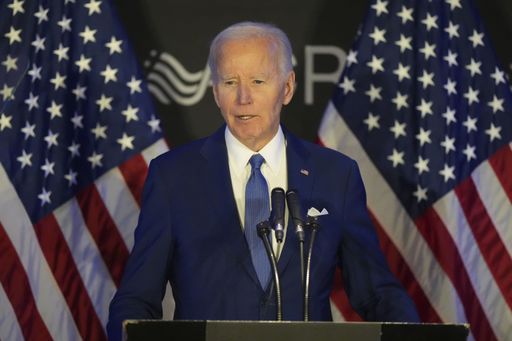Washington, DC — The news crept in on a quiet Sunday, as sly as winter light slipping through half‑drawn drapes: Joseph R. Biden, only months out of the Oval Office, still etched on the nation's mind, has aggressive metastatic prostate cancer.
The revelation pressed an immediate, needling question into the bloodstream of Washington, DC: with an elite medical corps circling him day and night, how did the illness of the 46th President of the United States slip the cordon, and was any of it kept from public view?
During his presidency, Biden was never more than a corridor away from some of the top scanners, best specialists, and sealed labs that turned every vial into data.
Last year, those very doctors signed the certificate every modern president craves — "fit for duty."
That phrase now feels like a postcard from a lost country.
A Gleason‑9 cancer — bone‑deep, fiercely aggressive — rarely blooms overnight.
Voices online and on the streets of America were quick to ask whether caution about electoral optics dulled clinical vigilance as Biden weighed a second term.
Statistics, ever blunt, say roughly one in three men with metastatic disease are alive at five years.
Biden is 82. The diagnosis has reopened a half‑settled inquiry into transparency at the pinnacle of power.
His stiffened gait, the memory stumbles, that halting presidential debate with Trump, which finally nudged him from the campaign stage — every detail is being re‑examined.
Was the cancer already present, masked by subtlety? Or did routine protocols fail to catch a fast‑moving foe?
Noted Urologist Dr David Shusterman argued that Biden could have known for some time. "The fact that we just find it at a Gleason nine is just pretty much unheard of in this day and age of medicine," Shusterman told NewsNation Prime.
Public reaction in the US, outwardly generous, hid its calculations.
US President Donald Trump posted a note of sympathy.
"Melania and I are saddened to hear about Joe Biden’s recent medical diagnosis," Trump wrote in a post on Truth Social. "We extend our warmest and best wishes to Jill and the family, and we wish Joe a fast and successful recovery."
Former President Barack Obama, under whom Biden served as Vice President for eight years, said, "Michelle and I are thinking of the entire Biden family. Nobody has done more to find breakthrough treatments for cancer in all its forms than Joe, and I am certain he will fight this challenge with his trademark resolve and grace. We pray for a fast and full recovery."
Remarking on Biden's cancer diagnosis, US Vice President JD Vance said, "We really do need to be honest about whether the former president was capable of doing the job...I don't think that he was in good enough health. In some ways, I blame him less than I blame the people around him."
Gauze of guarded statements
Beyond Washington's marble facades, another conversation has gathered in lower tones.
Human‑rights advocates remember Biden's unwavering support for Israel's war in Gaza — firestorms that felled already fragile oncology wards and shuttered the only cancer hospital in the besieged enclave.
Power outages silenced radiotherapy machines; convoys with chemotherapy drugs were stalled at checkpoints.
British journalist Owen Jones posted on X. "I watched my dad die from advanced prostate cancer. But then my dad didn't arm a genocide and facilitate the total destruction of a health care system, condemning other cancer patients to death."

Joe Biden's office confirms 'aggressive form' of disease has spread to bones but remains treatable.
Oncology voices outside Biden's inner medical circle preach sober realism. Hormone blockers can hobble the disease for a while, especially when paired with next‑generation agents that target DNA‑repair flaws or ferry radiation straight to malignant bone.
Biden himself has slipped behind a gauze of guarded statements, thanking well‑wishers and invoking faith and family.
For the US, the episode is both a cautionary tale and a mirror. A republic that celebrates vigour in its leaders must reckon with the opaque rituals that decide what citizens learn, and when.
Human bodies keep their own counsel; even a president stands powerless before the clandestine conspiracies of cell and marrow. Whether the disease was missed or masked may fuel panels and podcasts for months.
Ultimately, power is transient
Prostate cancer stands at the head of the grim parade. The National Cancer Institute (NCI) of the US lists it as the single most diagnosed malignancy in American men.
On the global ledger, it ranks second among male cancers and fourth across all humanity, the World Cancer Research Fund notes, a stubborn shadow stretching from Johannesburg to Jakarta.
The 2025 tally is already sobering: more than 313,000 fresh American cases, the NCI reports. That figure is almost triple the count for lung cancer, at roughly 110,000.
Nowhere on earth logs more confirmed prostate tumours than in the US.
Yet by confessing the enemy inside his own marrow, Biden leaves Washington staring at its deepest truth: power may bend nations, but all power is ultimately mortal.















